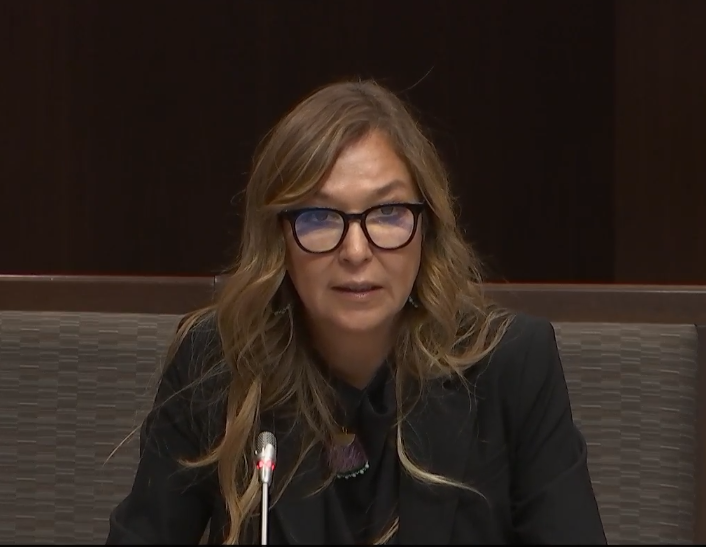The Metis Nation-Saskatchewan said while it supports the intent of federal legislation to establish a national committee on reconciliation, it cannot support the Bill in its current form.
Bill C-29, would create an Indigenous-led council for reconciliation, to provide oversight and monitor progress in all sectors across Canada and support long-term sustained action on reconciliation.
Michelle LeClair, Vice President of the Metis Nation-Saskatchewan says while this Bill is not perfect, nor should it be, it misses Indigenous voices. “It’s imperative that a distinct Metis perspective is requested and represented on the proposed Council,” she told a Senate Committee examining the legislation.
A lack of consultation with Metis governments, LeClair explained, has created too many blind spots. “How can this Bill accurately engage with us and lead to a meaningful change,” LeClair asked?
The legislation seeks to create a non-profit corporation, composed of nine to 13 directors, who would then report directly to Parliament on the progress of reconciliation and make recommendations.
However, opposition from the Inuit Tapiriit Kanatami (ITK) and the Assembly of First Nations, the other national Indigenous groups in the country could put the bill on life-support as ITK President Natan Obed has suggested the Inuit may not appoint a director.
The Senate committee examining the legislation, admitted without national Indigenous support, that their work on making recommendations to the federal government is difficult.
Alberta Senator Scott Tannas suggested that concessions by Ottawa may create a deal to bring support back from the ITK and the AFN.
“The voice of the committee has to be Indigenous, and it has to be from our communities,” LeClair said. “Chosen by our communities.”
(Screenshot of MN-S Vice President Michelle LeClair. Courtesy of CPAC.)
